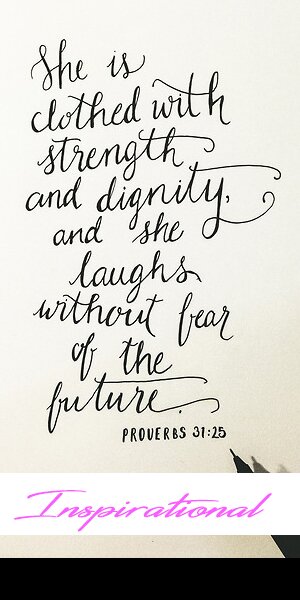To millions of suburban-living and uneducated pop culture addicted junkies, Hip-hop and business impresario Shawn “Jay-Z” Carter is unfairly identified merely as an intimidating former drug-dealing hustler who happens to be Beyoncé’s sidekick husband. To others, he is a certifiable corporate suit success in capitalistic White America. To devoted music aficionados, GRAMMY Award-winning Jay-Z is music royalty and a living legend who continues to write compelling chapters in his future Rock and Roll Hall of Fame music career. The self-proclaimed Michael Jordan of Rap has deservedly earned rich triumph courtesy of his intriguing rags-to-riches journey from Marcy Projects in Brooklyn, NY to selling out Madison Square Garden in becoming an iconic one man conglomerate in corporate business, pop culture and hip-hop culture. Without a scent of hyperbole, Jay-Z is the epitome of the American Dream.
However, Shawn Carter’s activity of pursued easy money in the mean streets of Brooklyn, NY in the late 80s naturally translated into a rappers delight of legitimate profiteering acumen and hustle in no less than a decade thereafter in the recording industry with the arrival of classic debut album “Reasonable Doubt” released on Carter-owned label Roc-A-Fella Records; “Reasonable Doubt” is considered a top three all-time studio album from Jay-Z, alongside masterpieces “The Blueprint” and “The Black Album”. To boast three legitimate classic albums in a career speaks monumental volumes to the work ethic, skill and creativity of Jay-Z as a recording artist and creative visionary.
Truth be told, whenever Hip-Hop was on its creative respirator, Jay-Z was the proverbial doctor who provided resusitation when the the genre was momentarily ailing. In addition, single-handedly signalling the death of T-Pain-popularized auto-tune with anti-vocoder anthem “D.O.A” (Death of Autotune) showcased the Brooklyn-born entrepreneur’s impact to shift a culture on his back overnight, alongside delivering wake up calls to Nas in a well-documented rivalry in September 2001 (informing Nas that his standards dipped since classics in “Illmatic” and “It Was Written” on the infamous “Takeover”). Jay-Z’s accomplishments – both artistically and within the realm of corporate business – are plentiful, and has attained living legend status due to his contributions over the course of the past twenty years in the public conscious. With that said, Jay-Z’s ascension to the top took close to a decade after years of remaining under the radar and struggling to get noticed by a major recording label. Ultimately, it was up to the musician to create a distinct path of his own in an independent record label and seeking a viable mainstream distributor to essentially ensure that it would be now opposed to never. Jay-Z’s innate business acumen – for better or worse – was mastered on the streets in New York, yet become refined with experience and later recognized by Forbes in being listed amongst the most affluent business entrepreneurs in urban entertainment.
Sustaining longevity and social relevance in the music and entertainment industry – let alone Hip-Hop’s ever-changing life – is a surefire testament to the natural talent, worldwide appeal and consistency of an artist and live performer of the caliber of Jay-Z; the GRAMMY Award-winning musician has scored more number one albums on Billboard’s Hot 200 Album chart than Elvis Presley.

Furthermore, breaking racial and musical barriers in recording an album with award-winning Linkin Park (“Collision Course”) ensured that an African-American audience would find appreciation – or at least a newfound respect for the “In The End” nu-metal act, likewise chiefly Caucasian alternative music listeners conversely would acquire a vast perspective of Hip-Hop as a culture and the “Dirt Off Your Shoulders” hitmaker; Jay-Z has headlined Glastonbury Festival, a previously borderline restricted territory for Hip-Hop musicians and African-American recording artists to a greater degree prior to Jay-Z.
Jay-Z’s innate skill in balancing commercial sounds with street sensibilities without a feared risk of alienating his core audience in sacrificing his artistic integrity as an artist (see: “Hard Knock Life”) seemingly remains his bread and butter outside of his decision making as an entrepreneur.
“Magna Carter Holy Grail” saw Jay-Z exhibit little signs in slowing down with age, even with the leading current Hip-Hop generation led by Drake, J. Cole, Kendrick Lamar, Big Sean, and Wiz Khalifa making emphatic statements on radio, charts and pop culture simultaneously; Jay-Z has stated that he intends to continue live touring and recording music similar to legendary pop/rock singer-songwriter, Bruce Springsteen. Hip-hop is unequivocally a young man’s game and offers a limited shelf life traditionally in contrast to R&B, Gospel or rock artists, whom often have dedicated fan bases long after the respective artists have peaked.
Unequivocally, many credible musicians are often heralded as certifiable legends after an unceremonious passing, yet Jay-Z’s mighty stature as a living legend will remain bulletproof given what the 46-year-old Brooklyn-born entrepreneur has given to the entire world over the course of his glittering career.
W| By Dean Perretta















